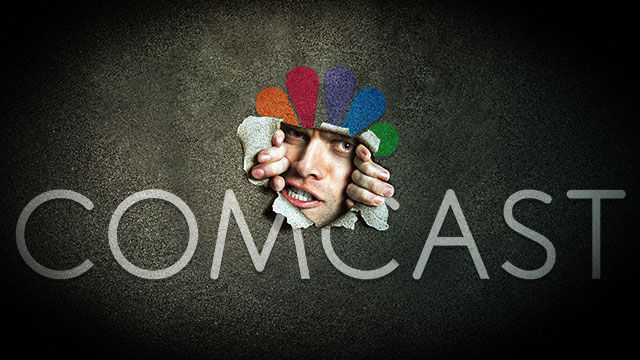Comcast gets FCC’s help in $3.5 million battle against small cable company

The Federal Communications Commission has dismissed a complaint against Comcast filed by a rival that said it was forced “to pay a punitive ransom” of $3.5 million in order to keep airing Comcast-owned TV programming.
Wave Broadband filed what it called a petition for declaratory ruling, claiming that Comcast engaged in unfair acts and practices that prevented Wave from providing programming to subscribers. But the FCC’s Media Bureau decided that Wave’s petition was actually a program access complaint—and there is a strict deadline for filing such complaints.
“[W]e dismiss the Petition because Wave did not file within the time limit that our program access rule requires,” the FCC said in its ruling on Wednesday.
With that decision, the FCC accepted Comcast’s argument that Wave’s petition came too late because it was filed “in the final month of the contract terms, long after the [FCC’s one-year statute of] limitations periods expired.”
Wave has about 455,000 customers in Washington, Oregon, and California. Comcast has more than 22 million TV customers nationwide, and its ownership of various TV networks lets Comcast get payments from other cable companies that want access to the programming.
“Punitive ransom”
Wave had complained about demands from Comcast-owned Regional Sports Networks (RSNs), which Wave said “had the effect of withholding must-have regional sports programming from the largest cable competitor to Comcast Cable on the West Coast unless Wave agreed to pay a punitive ransom totaling nearly $3.5 million.”
Wave had argued that there was no time limit to petitions regarding Section 548(b) prohibitions on cable operators using deceptive or unfair acts and practices to hinder rivals’ access to programming. Wave also warned that Comcast’s argument, if accepted by the FCC, would allow all manner of egregious behavior as long as it isn’t complained about within one year of signing a multi-year agreement.
The FCC was not convinced, saying that Wave in reality filed a program access complaint that was subject to the strict deadline. The FCC also said it would not waive the one-year deadline for such complaints, saying that “Wave articulate[d] no reason to justify waiver of the one-year time limit.”
The Wave/Comcast contract signed in October 2014 required Wave to deliver the Comcast sports networks to a certain percentage of total subscribers.
“Ultimately, Wave was not able to maintain the contracts’ agreed-upon subscriber penetration percentage terms—a result that Wave attributes to Comcast’s decision to offer its regional sports networks through different distribution methods—and Wave agreed in July 2017 to cure the breach of contract with a payment of damages to Comcast,” the FCC decision noted in its description of the dispute.
Those “different distribution methods” are online video services that also carry Comcast sports networks. Many customers purchase Wave’s basic TV service and augment it with a separate online video service, Wave said. That contributed to Wave’s inability to maintain the required percentage of subscribers receiving Comcast content.
Comcast threatened to drop its sports networks from Wave’s TV service if it didn’t pay more, and Wave agreed to make a payment. Wave asked for refunds and damages totaling nearly $3.5 million and asked the FCC to declare the controversial contract provisions null and void.
Comcast argued that Wave made the commitments voluntarily in multiple contracts beginning in 2005. “Yet Wave now asks the Commission to declare that the parties’ arrangements under the expired agreements are ‘unlawful,’ to absolve Wave’s acknowledged breach of the contracts,” Comcast told the FCC.
But ultimately, it was the timing of the complaint that sunk Wave’s request, as the FCC never ruled on its merits.
https://arstechnica.com/?p=1272959